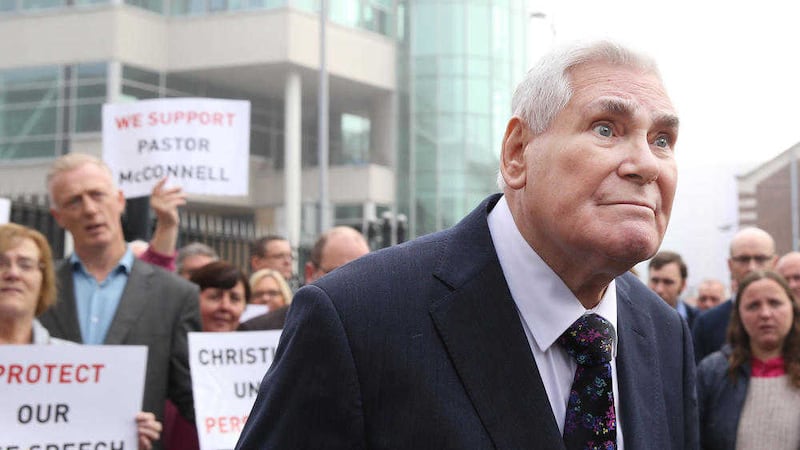For a glimpse of how far down the rabbit hole a bad law can take us, it is hard to beat last week’s Radio Ulster exchange between Unison regional secretary Patricia McKeown and Taxpayers’ Alliance representative David Hoey.
Discussing the issue of union activity on the public payroll, McKeown accused Hoey of presenting “a thinly-veiled attack on the trade union movement”, adding “in my book and under the laws of Northern Ireland, that constitutes political discrimination.”
McKeown was wrong - but understandably so, as the law and her interpretation of it are drifting into line, nudged considerably this year by the ‘gay cake’ verdict.
The original law against political discrimination in Northern Ireland was 1976 fair employment legislation, updated in 1998 to include denial of goods and services. Discrimination by public authorities on the grounds of ‘political opinion’ was prohibited under the Good Friday Agreement.
In all these laws, ‘political’ was meant as a shorthand for unionist or nationalist - but legal rulings have since expanded the term to cover any matter of public policy or debate.
That is how a gay cake became a matter of discriminating against the purchaser’s politics, as well as his sexuality.
Where McKeown and the law still differ is that something must be denied - a job, a product, a public service - for political discrimination to occur. It is not unlawful merely to express a discriminatory political opinion. However, as the cake became political by the pro-gay marriage opinion to be iced upon it, the difference is becoming so slight that even a leading trade unionist apparently struggles to see it.
McKeown also seemed blind to the possibility of Hoey accusing a union spokesperson of political discrimination against taxpayers. Behind every carelessly-worded law lies a similar assumption that the real meaning of loose terms will always be understood as initially intended, because right and wrong are always obvious. But in politics, right and left take different views of right and wrong, so anything could be dragged into this vague, growing sense that the expression of a view you dislike is an act of discrimination against you. How absurd is it that we have come so close to accidentally outlawing politics itself?
This year’s other legal sensation - the prosecution of Belfast pastor James McConnell - exposes a law that is equally absurd but considerably more dangerous.
Plenty has been said about how bringing McConnell to court over an anti-Islamic sermon threatens free expression and freedom of religion but the full recklessness of the case is only emerging as its mechanics come to light.
McConnell is being prosecuted under a 2003 law against transmitting “grossly offensive” remarks over an electronic communications network. This is widely seen as a cunning move by the Public Prosecution Service (PPS) to side-step questions of free speech and freedom of religion by treating the sermon solely as an offensive internet broadcast. However, the woolly concept of ‘offensiveness’ - which the 2003 law makes no attempt to define - is still at the heart of the case.
Last week, it was reported that the PPS had planned to prove offence by summoning four Muslim witnesses to testify that they had been offended, presumably as a complement to establishing some objective basis of offensiveness in law. A change to the hearing’s December schedule indicates this plan has now been dropped but it is incredible that it ever reached such an advanced stage, let alone that it passed the PPS’s public interest test.
Anyone might be offended by anything, so the views of four out of Northern Ireland’s estimated 4,000 Muslims would have proved nothing.
There are no reports of the PPS conducting a general survey of Muslim opinion to ensure that its one in a thousand witness sample would have been representative, so those most offended would likely have been the first called.
Seeking their views in court would have appeared to pit faith groups against each other, in an adversarial legal setting, with one group seeking to get another’s cleric incarcerated based entirely on how much their feelings were hurt. The potential damage to community relations is easy to imagine.
The gay cake case is due for appeal after McConnell’s trial. Reasserting the primacy of free expression and freedom of religion need not affect the outcome of either case but it might stop the catch-all laws behind them from eroding basic liberty, discrediting the courts before the public and driving wedges between people in the name of bringing them together.
newton@irishnews.com









